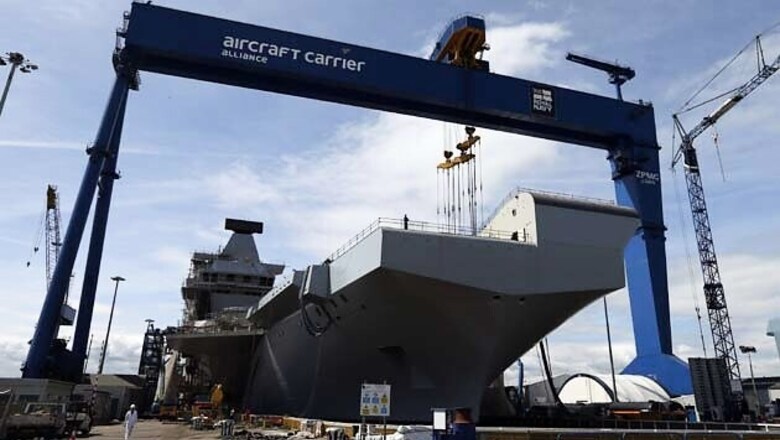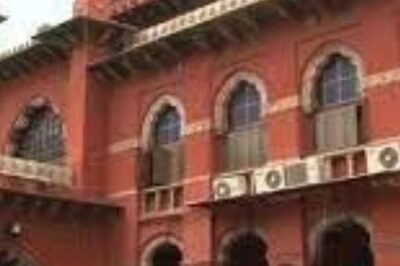
views
London: Queen Elizabeth II smashed a bottle of whisky against Britain's biggest warship on Friday as she gave her name to the new aircraft carrier at a ceremony in Scotland. The 65,000-tonne HMS Queen Elizabeth is one of two carriers being built at a combined cost of £6.2 billion ($10.6 billion, 7.8 billion euros) to overhaul Britain's naval capabilities.
But the pomp of the ceremony at Rosyth Dockyard near Edinburgh came despite serious doubts about the carrier's US-built jets. Queen Elizabeth said Britain's future flagship, due to enter service in 2020, "marks a new phase in our naval history".
The 88-year-old monarch attended the naming ceremony with her husband Prince Philip, Britain's lord high admiral who served in the navy in World War II. "Wherever this ship may serve, whatever tasks may be asked of her, let all those who serve on her know that on this day she was blessed with the prayers of us all for her success and her safe return to calm waters," she said.
"I name this ship Queen Elizabeth. May God bless her and all who sail in her."
The ship is named after both the current monarch and England's Queen Elizabeth I, who reigned from 1558 to 1603. She then pressed a button to button to bring a bottle of Bowmore malt whisky from the Scottish island of Islay crashing down onto the side of the ship.
British authorities eschewed the traditional champagne in honour of the Scottish location. Prime Minister David Cameron said the ship "will be the spearhead of British sea power for the next half century".
The Red Arrows military aerobatics display team later flew over the ship, streaming red white and blue smoke behind them, followed by historic naval aircraft.
- Longer than 28 buses -
The ship measures 280 metres (920 feet) long - the equivalent of 28 London buses or nearly three times the length of Buckingham Palace - and 56 metres from keel to masthead.
The Royal Navy has been without any carrier strike capability since Cameron's coalition government scrapped Britain's previous vessels in 2010 as part of austerity measures to curb a huge deficit. The metal was first cut on the new HMS Queen Elizabeth five years ago. The dock will be flooded later this month allowing the ship to float for the first time.
Sea trials are expected to begin in 2017, with flight trials of its Lockheed Martin F-35 Lightning II stealth multi-role fighters starting the following year. Its sister ship, HMS Prince of Wales, is still under construction.
Once they are fully operational, the warships will be able to carry 40 aircraft each, both rotary and fixed wing, and are intended to provide a mobile base for Britain's navy, army and air force around the world. But the Queen Elizabeth and its complement of US-built F-35 jets will not enter service until 2020, meaning Britain faces another six years without any active carrier strike capability.
The F-35 has been dogged by problems. The US military grounded its entire fleet of the aircraft on Thursday as it completes additional engine inspections following a fire aboard one of the jets in Florida last week.
There have also been questions about whether Britain needs such mammoth aircraft carriers when its military role in the world has diminished.
Two months before Scotland votes in an independence referendum on whether to stay or leave the United Kingdom, Defence Secretary Philip Hammond said it showcased the best of Britain. "This ship, the biggest the Royal Navy has ever had, is a demonstration of the UK at its very best with workers from across the Union contributing," he said in a statement.
Built by a partnership comprising BAE Systems, Babcock, Thales and the Ministry of Defence, the construction has involved 10,000 people across six ship yards.


















Comments
0 comment